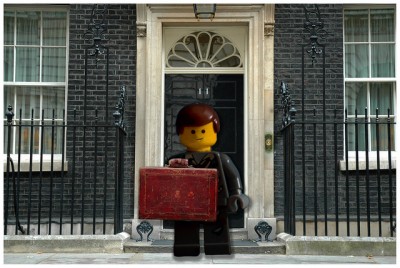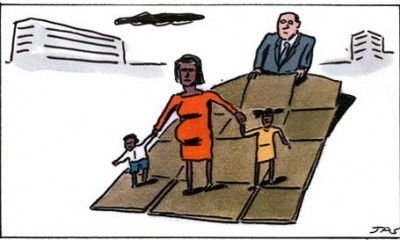Engender blog
Gender Matters in Social Security - why we need individual payments of universal credit
Engender has joined a coalition of charities including women’s and equalities organisations, anti-poverty groups and the Scottish Trades Union Congress to release a paper calling on Scotland to use new powers over social security to promote women’s equality and diverge from the damaging UK policy of joint payments of Universal Credit.
Women lose in Summer Budget 2015
 Wednesday’s
budget made for extremely grim listening and reading. Low-income women and
their children will be pushed into poverty at the expense of increased spending
on defence and tax breaks for the affluent. Women were always going to be
penalised by this budget, not least because of the well-trailed £12 billion
worth of cuts to the ‘welfare’ budget, but some of the detail and framing
language is even worse than predicted.
Wednesday’s
budget made for extremely grim listening and reading. Low-income women and
their children will be pushed into poverty at the expense of increased spending
on defence and tax breaks for the affluent. Women were always going to be
penalised by this budget, not least because of the well-trailed £12 billion
worth of cuts to the ‘welfare’ budget, but some of the detail and framing
language is even worse than predicted.
Our recent report sets out why gender inequality has risen as the result of welfare reform. Women’s caring roles and low-paid jobs mean that different groups of women are particularly impacted by austerity measures. Summer Budget 2015 is no different. The House of Commons Library has already issued analysis estimating that 70% of the £34bn pounds of savings to be made by 2020/21 will come from women’s pockets. As HMT has not published an Equality Statement alongside its budget, outlining how different groups will be affected by its spending choices, we can only assume that it does not care that this will undermine gender equality, and increase women’s and children’s poverty.
A Widening Gap - new report shows women bear the brunt of welfare reform
Since 2010, £26 billion worth of cuts have been made to benefits, tax credits, pay and pensions. 85% of this has fallen on women’s incomes.
To coincide with the Welfare Reform Committee’s Inquiry on Women and Welfare Reform, Engender, together with Close the Gap, Scottish Council for Voluntary Organisations, Scottish Refugee Council and Scottish Women’s Aid, have today launched a report examining the impact of welfare reform on women in Scotland.
Statement to the Joint Ministerial Working Group on Welfare

Today we are publishing a joint statement to the new Joint Ministerial Group on Welfare, which was established by the UK Government command paper and draft clauses on further devolution published in January.
‘Welfare’ and women: an update
 Last week, George Osborne announced that the Treasury will start publishing annual breakdowns of public tax spend per head, in a move that will apparently increase transparency for taxpayers.
Last week, George Osborne announced that the Treasury will start publishing annual breakdowns of public tax spend per head, in a move that will apparently increase transparency for taxpayers.
Cue rounds of analysis raising bones of contention online. It is in no way surprising that ‘welfare’ has been at the heart of debate, with many commentators quick to point out that our esteemed HMT has chosen to chunk up the data such that ‘welfare’ spending is represented extremely misleadingly indeed.
Downloads
 Engender Briefing: Pension Credit Entitlement Changes
From 15 May 2019, new changes will be introduced which will require couples where one partner has reached state pension age and one has not (‘mixed age couples’) to claim universal credit (UC) instead of Pension Credit.
Engender Briefing: Pension Credit Entitlement Changes
From 15 May 2019, new changes will be introduced which will require couples where one partner has reached state pension age and one has not (‘mixed age couples’) to claim universal credit (UC) instead of Pension Credit.
 Engender Parliamentary Briefing: Condemnation of Misogyny, Racism, Harassment and Sexism
Engender welcomes this Scottish Parliament Debate on Condemnation of Misogyny, Racism, Harassment and Sexism and the opportunity to raise awareness of the ways in which women in Scotland’s inequality contributes to gender-based violence.
Engender Parliamentary Briefing: Condemnation of Misogyny, Racism, Harassment and Sexism
Engender welcomes this Scottish Parliament Debate on Condemnation of Misogyny, Racism, Harassment and Sexism and the opportunity to raise awareness of the ways in which women in Scotland’s inequality contributes to gender-based violence.
 Gender Matters in Social Security: Individual Payments of Universal Credit
A paper calling on the Scottish Government to automatically split payments of Universal Credit between couples, once this power is devolved to the Scottish Parliament.
Gender Matters in Social Security: Individual Payments of Universal Credit
A paper calling on the Scottish Government to automatically split payments of Universal Credit between couples, once this power is devolved to the Scottish Parliament.
 Gender Matters Manifesto: Twenty for 2016
This manifesto sets out measures that, with political will, can be taken over the next parliamentary term in pursuit of these goals.
Gender Matters Manifesto: Twenty for 2016
This manifesto sets out measures that, with political will, can be taken over the next parliamentary term in pursuit of these goals.
 Scottish NGO Briefing for UN Special Rapporteur on Violence Against Women
Joint briefing paper for the UN Rapporteur on Violence Against Women.
Scottish NGO Briefing for UN Special Rapporteur on Violence Against Women
Joint briefing paper for the UN Rapporteur on Violence Against Women.

Newsletter
Sign up to receive our newsletter here:
Sign up to our mailing list
Receive key feminist updates direct to your inbox: